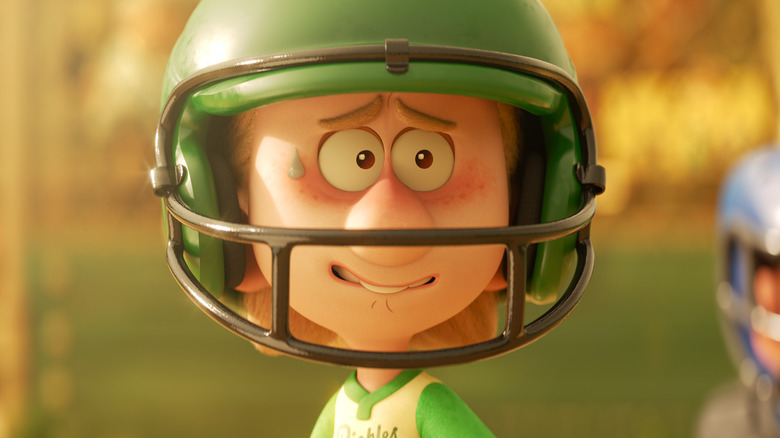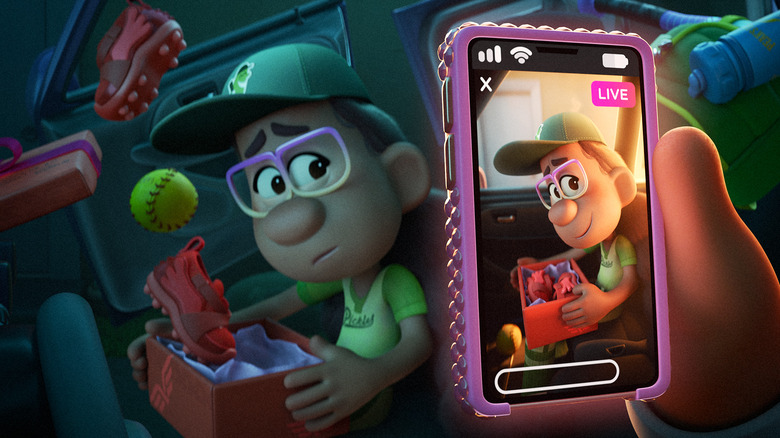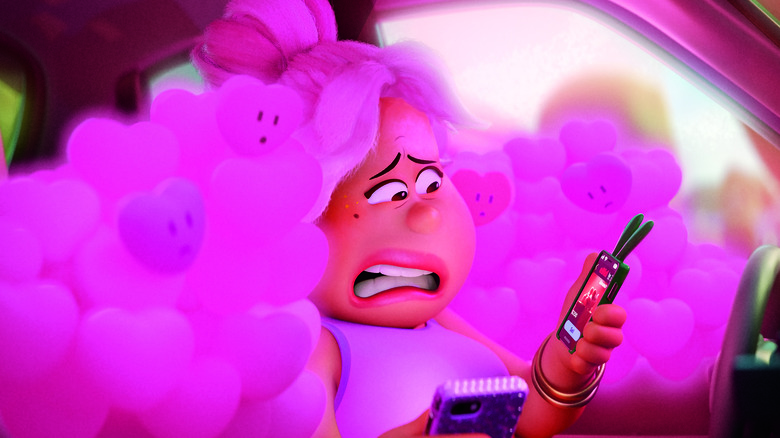Win Or Lose Review: Pixar Series Starts Strong, But Censorship Threatens A Home Run
- Clever interlocking of different perspectives
- Thoughtful characterization
- Snappy comedic timing
- Disney's anti-trans censorship is inexcusable
- Could have gone further with visual experimentation
One of the biggest challenges in reviewing TV shows is having to judge a full season based off only a fraction since networks don't always provide full seasons to review. It makes sense that finales are usually off-limits for spoiler reasons — can't risk any hints about who kills who in reviews of "The White Lotus" – but then there are times when selective screeners lead to misleading reviews. Recall how many critics dismissed the first season of "BoJack Horseman" because the screeners cut off just before the show gets great — or on the flip side, how many praised "Uzumaki" based on just the first episode (one of the best anime moments of 2024), before the show's quality fell down the toilet.
Disney+ has provided critics with screeners for the first four episodes of the eight-episode series "Win or Lose," Pixar's first (and, in light of recent layoffs and restructuring, possibly last) original streaming show. These episodes range in quality from good to great, and with the way the show keeps getting more compelling the more it builds, this should be an easy and enthusiastic recommendation.
However, I come to "Win or Lose" with knowledge of the big elephant in the room: that Disney delayed the series' release by over a year for the purpose of redoing the show's seventh episode, centered around the character of Kai (Chanel Stewart), and removing any trace of the character's trans identity. Such censorship, of a show that was already fully completed no less, is morally inexcusable, and in a show built around every character's story being tightly interwoven with one another, there's reason to fear it will be artistically messy as well.
The same story from multiple perspectives
"Win or Lose" is about a co-ed middle school softball team known as the Pickles preparing for their big championship game, each episode giving a different character's perspective on the week leading up to the game. Episode 1, "Coach's Kid," centers on Laurie (Rosie Foss), an anxious player who fears she's only included on the team because her dad Dan (Will Forte) is the coach. Episode 2, "Blue," shows what's going on with the umpire Frank (Josh Thomson), a nerdy teacher occupied with whether to get back in the dating game after a rough break-up. Frank catching star student Rochelle (Milan Ray) helping other kids cheat leads into finding out Rochelle's story in Episode 3, "Raspberry," which in turn leads into the story of her seemingly immature influencer mother Vanessa (Rosa Salazar) in Episode 4, "Pickle."
These stories are among the most grounded and realistic of any Pixar project, but the animators get creative with visual metaphors for the characters' feelings. Laurie's anxiety takes the form of a growing blob named Sweaty (Jo Firestone) — the subject matter's a bit familiar from "Inside Out 2," but still delivered with a cute sense of humor. Frank forms protective video game armor in awkward social situations. Rochelle turns into a shoulder-padded girlboss when she's confident, but when facing financial insecurity, gravity stops working and the world falls apart around her. Vanessa is bouncy, comforted by the pink glow of social media hearts, but can spring into anime-esque action when the situation's urgent.
Stylistically, "Win or Lose" is of a piece with the soft rounded approach of recent Pixar originals like "Luca" and "Turning Red," but further simplified and abstracted. The animation is snappy, cartoony, and often funny — in particular, every scene with Rochelle's violent baby brother Zane (Harlow Hodges) made me smile — while still effective at conveying sadder moments. Solid as the production is, I did find myself wishing it went further with experimentation. Early hype for the show described each episode as having a different visual style, but it feels more accurate to say these first four episodes are putting different flourishes on what's mostly the same style. Further episodes might go more out-there (I'm intrigued by the cardboard-style bits shown in some promos).
The writers put care in the characters — but one story's been censored
"Win or Lose" shines in the specificity of its characterization. Laurie faces her anxieties through prayer, resulting in the most direct and sensitive treatment of Christian faith in a Disney cartoon since "The Hunchback of Notre Dame." The little detail of the Ruth Bader Ginsberg portrait in Frank's home is the perfect shorthand for the animators to tell us, "Yes, he's an awkward nerd bad at talking to women, but he's not that stereotype of the awkward nerd bad at talking to women." The Rochelle and Vanessa episodes are the best examples thus far of how the show's alternating perspectives can completely change our understanding of a character, with Vanessa's perspective as a young mother having some heavy nuances only older viewers will pick up on.
The very premise of this series is a celebration of diverse perspectives, so it's all the more disappointing that the Disney higher-ups decided to censor one of these perspectives. Given how "Win or Lose" has handled all its other characters, there is no doubt in my mind that the original cut of Episode 7 could have approached the transgender plotline beautifully — and I would not be shocked it gets leaked a la the banned trans episode of "Moon Girl and Devil Dinosaur." The best case scenario for the censored version I can imagine would be if there's still enough coding and relevant themes to allow for trans headcanons and interpretations. In the worst case scenario, whatever the replacement for Kai's story is feels shoehorned in and the trans erasure leaves the whole experience feeling yucky.
The four episodes I've seen of "Win or Lose", especially Episodes 3 and 4, are among Pixar's strongest work in recent years. They're way better than disappointments like "Lightyear" and "Elemental," and their mix of comedy and family drama calls to mind my recent Pixar fave "Turning Red." Every detail feels purposeful, every character distinctive, and the structure takes advantage of the serialized medium in a way few Disney+ projects manage (you couldn't recut this into a movie they way they turned the "Moana" series into "Moana 2"). Yet I can't escape the dread that the last-minute changes to the show's second half could threaten its tight narrative construction as well as its positive inclusive ethos, so my praise is measured and tentative.
"Win or Lose" premieres on Disney+ on February 19.


